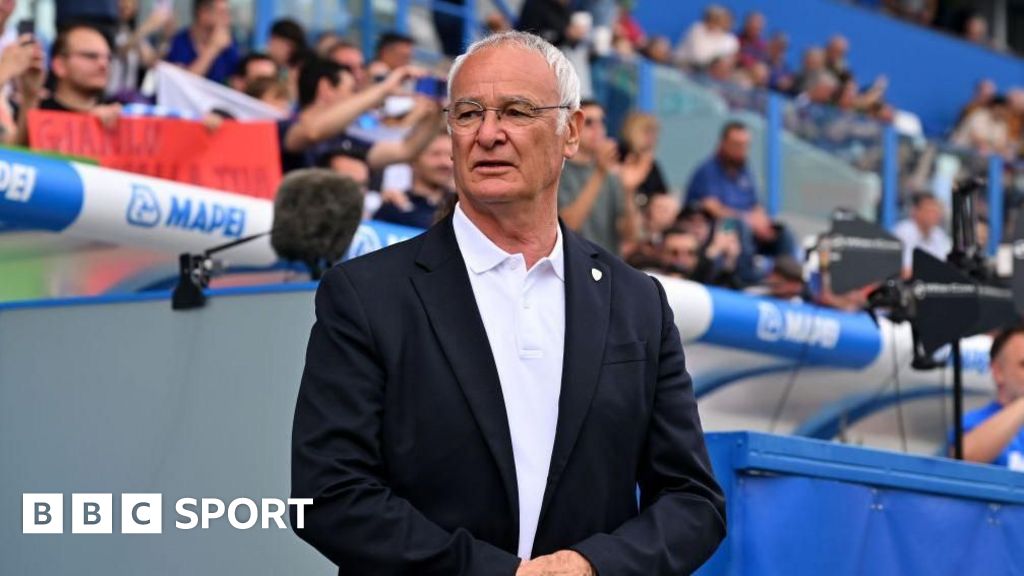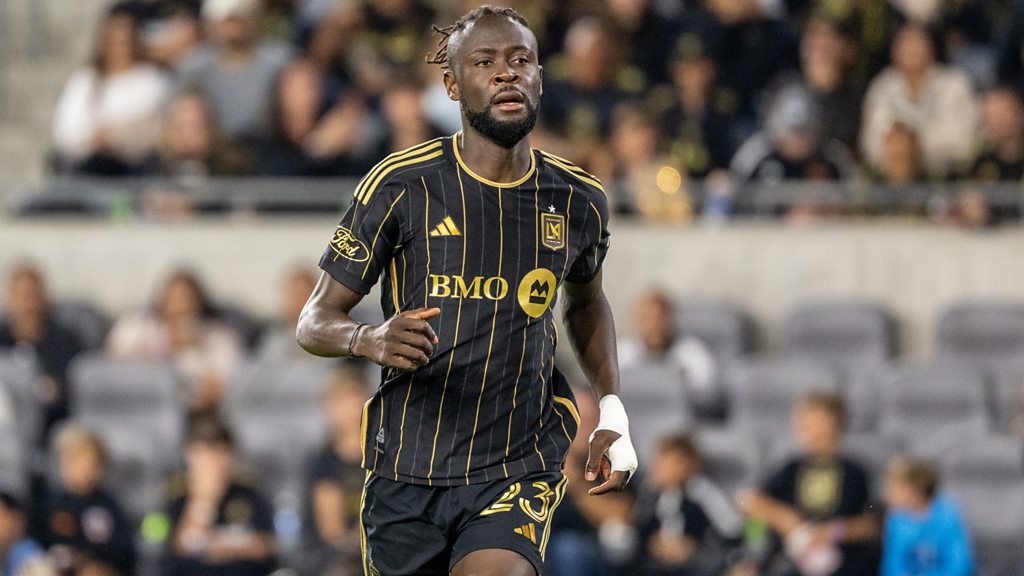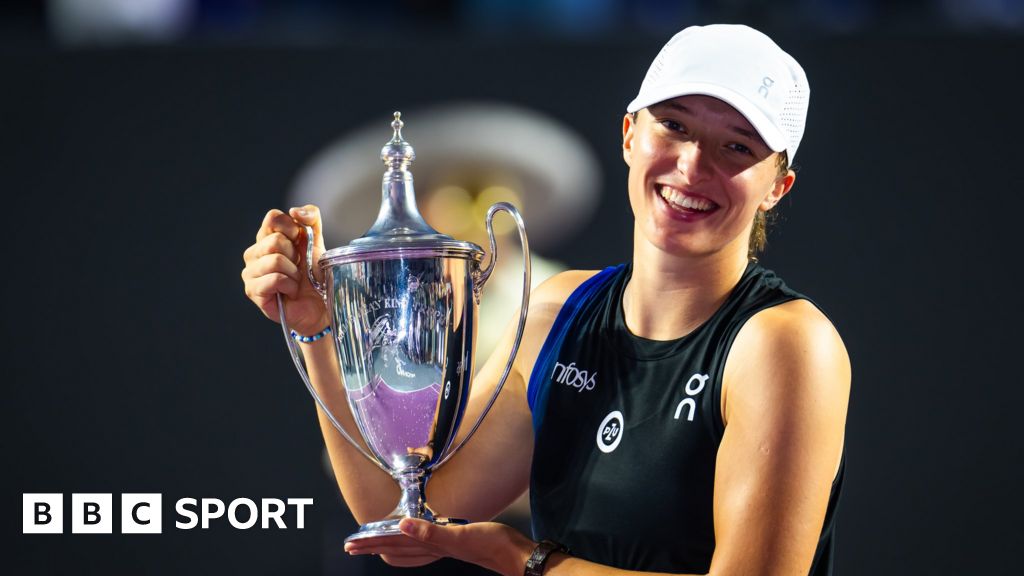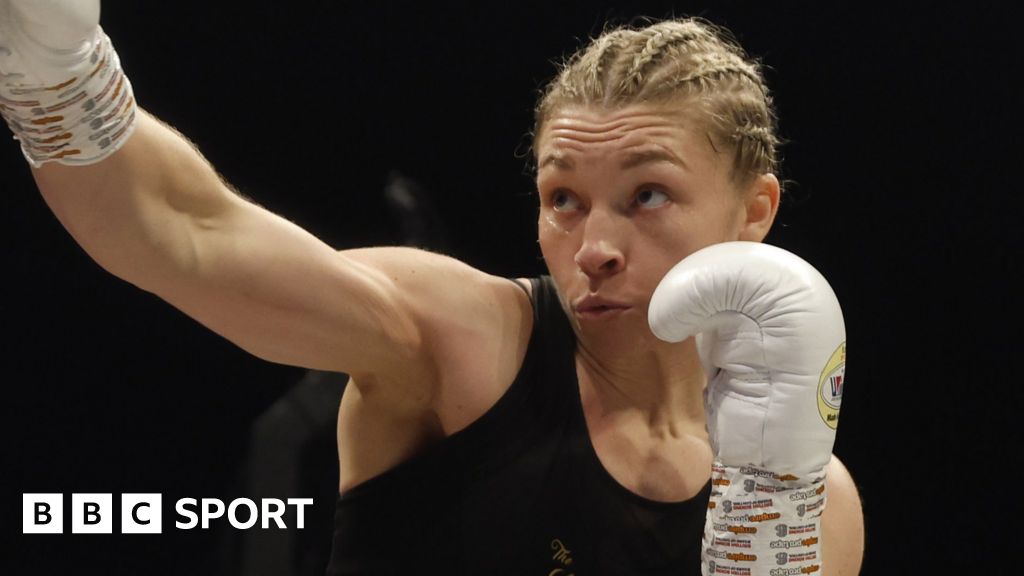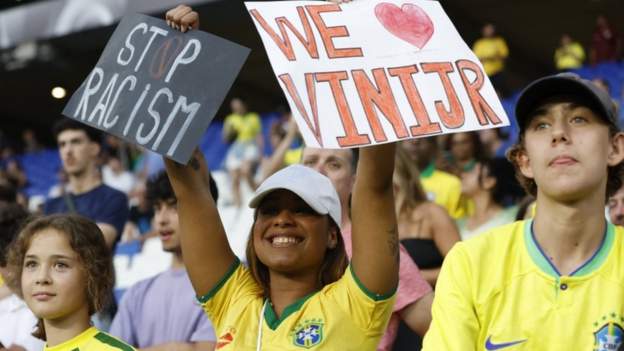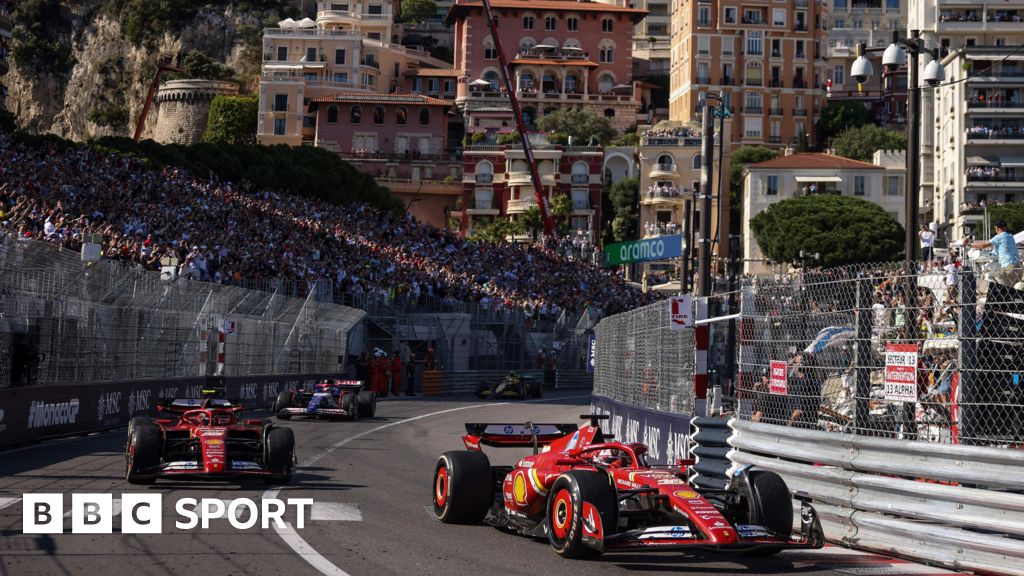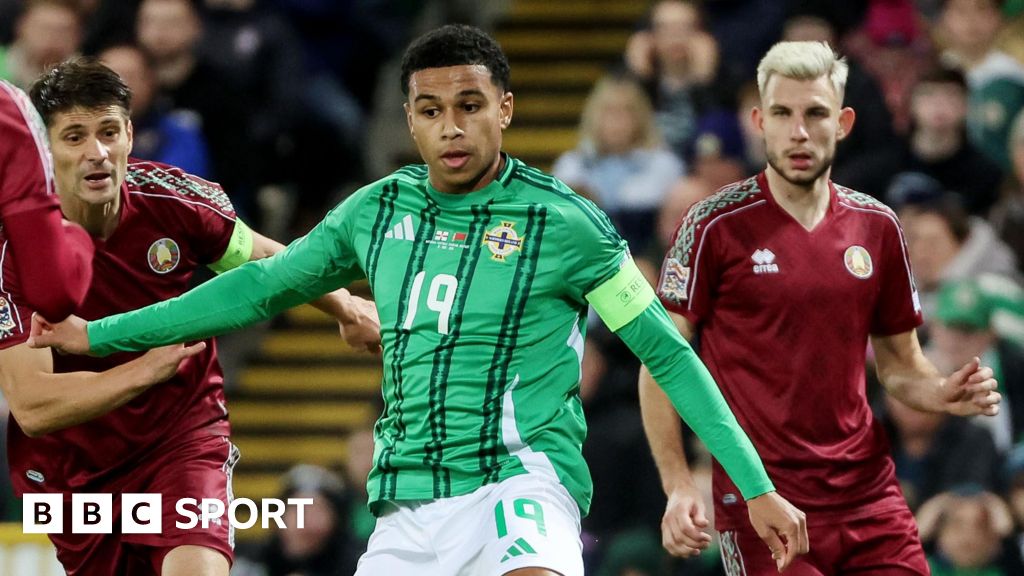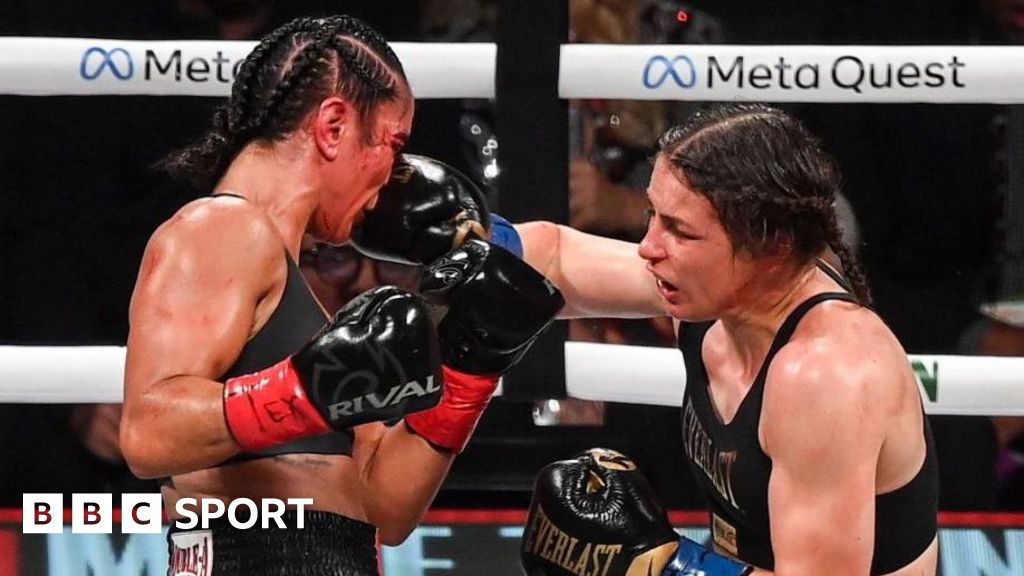Criticism of the long-anticipated move to Saudi Arabia has been led by Navratilova and Evert, who wrote an opinion piece for the Washington Post in January.
“Taking a tournament there would represent a significant step backward, to the detriment not just of women’s sport, but women,” the pair wrote.
Human Rights Watch told the BBC in December that Saudi courts had convicted people for promoting homosexuality online and added “LGBT people in Saudi Arabia have to practise extreme self-censorship to survive their daily lives”.
Daria Kasatkina, who is in a same-sex relationship, is the only top player to have voiced opposition about a move to Saudi. Jabeur previously said she would be “very excited” to play in the country.
Critics say unprecedented spending on sport has been used to improve the oil-producing kingdom’s reputation over its human rights record and its environmental impact.
But the Saudi government says the investment is boosting the economy, opening it up to tourism and inspiring people to be more active.
“We have had direct discussions with the players, and a couple of the trips we had over there we had some people join us from the LGBTQ+ community,” Simon continued.
“We have also done a lot of research for some of the other sporting events that have been held over there, and they have only had positive experiences within the region.”
Arij Almutabagani, who in 2021 became the first woman elected to run one of the country’s sports federations, said: “Everyone will be made to feel extremely welcome.
“Our country is moving forward. Much has been achieved already and many historic steps taken by women in all sectors in recent years, with sport driving much of the progress across our entire society.
“Hosting the WTA Finals is absolutely huge for the future of tennis in Saudi Arabia and growing sport in general, especially amongst our young girls. And that’s entirely our focus, to inspire future generations of players and celebrate women’s tennis.”

